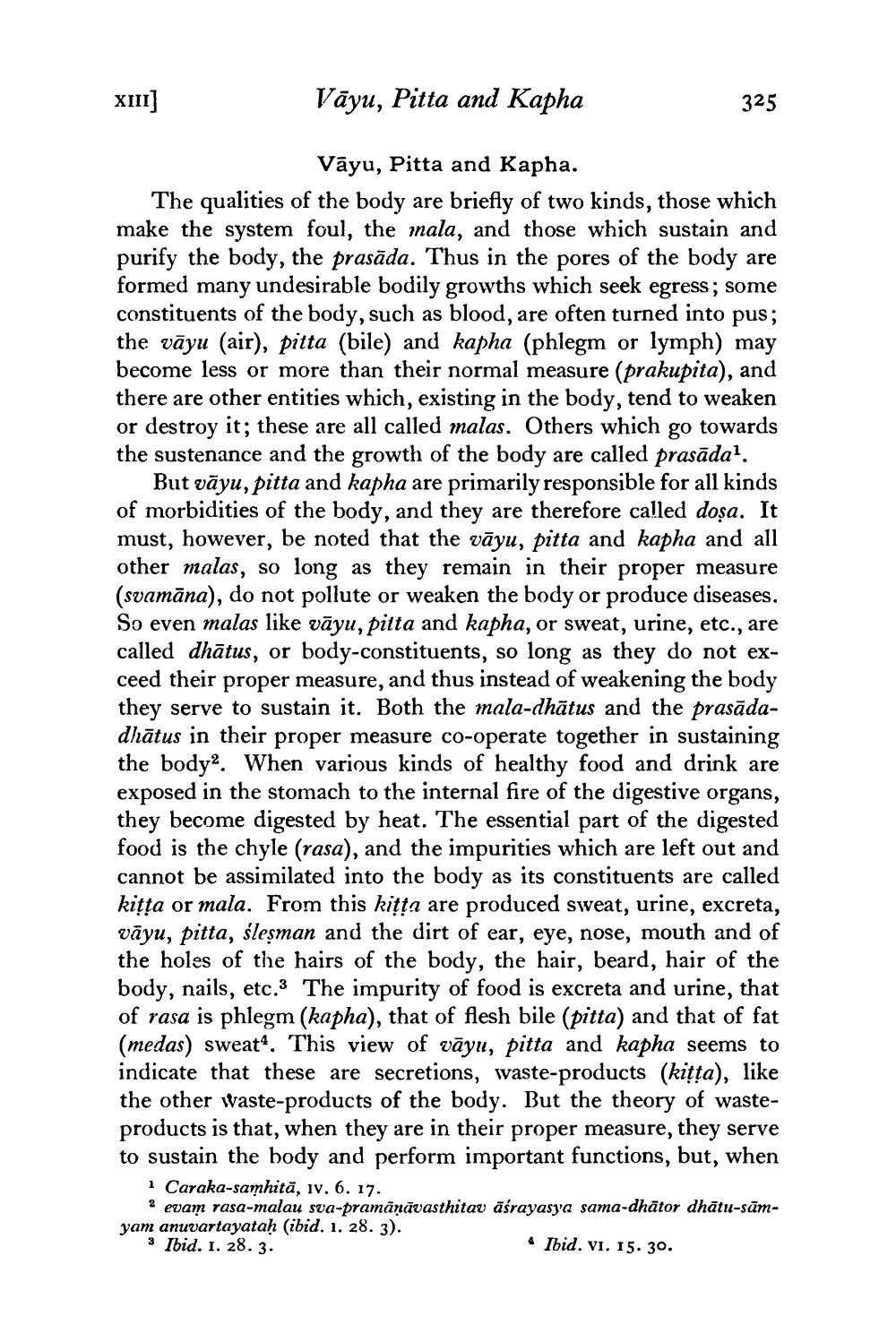________________
XIII
Vāyu, Pitta and Kapha
325
Vāyu, Pitta and Kapha. The qualities of the body are briefly of two kinds, those which make the system foul, the inala, and those which sustain and purify the body, the prasāda. Thus in the pores of the body are formed many undesirable bodily growths which seek egress; some constituents of the body, such as blood, are often turned into pus; the vāyu (air), pitta (bile) and kapha (phlegm or lymph) may become less or more than their normal measure (prakupita), and there are other entities which, existing in the body, tend to weaken or destroy it; these are all called malas. Others which go towards the sustenance and the growth of the body are called prasāda.
But vāyu, pitta and kapha are primarily responsible for all kinds of morbidities of the body, and they are therefore called doșa. It must, however, be noted that the vāyu, pitta and kapha and all other malas, so long as they remain in their proper measure (svamāna), do not pollute or weaken the body or produce diseases. So even malas like vāyu, pitta and kapha, or sweat, urine, etc., are called dhātus, or body-constituents, so long as they do not exceed their proper measure, and thus instead of weakening the body they serve to sustain it. Both the mala-dhātus and the prasādadhātus in their proper measure co-operate together in sustaining the body. When various kinds of healthy food and drink are exposed in the stomach to the internal fire of the digestive organs, they become digested by heat. The essential part of the digested food is the chyle (rasa), and the impurities which are left out and cannot be assimilated into the body as its constituents are called kițța or mala. From this kitta are produced sweat, urine, excreta, vāyu, pitta, śleşman and the dirt of ear, eye, nose, mouth and of the holes of the hairs of the body, the hair, beard, hair of the body, nails, etc.3 The impurity of food is excreta and urine, that of rasa is phlegm (kapha), that of flesh bile (pitta) and that of fat (medas) sweat". This view of vāyu, pitta and kapha seems to indicate that these are secretions, waste-products (kițța), like the other waste-products of the body. But the theory of wasteproducts is that, when they are in their proper measure, they serve to sustain the body and perform important functions, but, when
i Caraka-samhită, iv. 6. 17.
2 evam rasa-malau sva-pramānāvasthitav āśrayasya sama-dhātor dhātu-sāmyam anuvartayataḥ (ibid. 1. 28. 3). 3 Ibid. 1. 28.3.
4 Ibid. vi. 15. 30.




